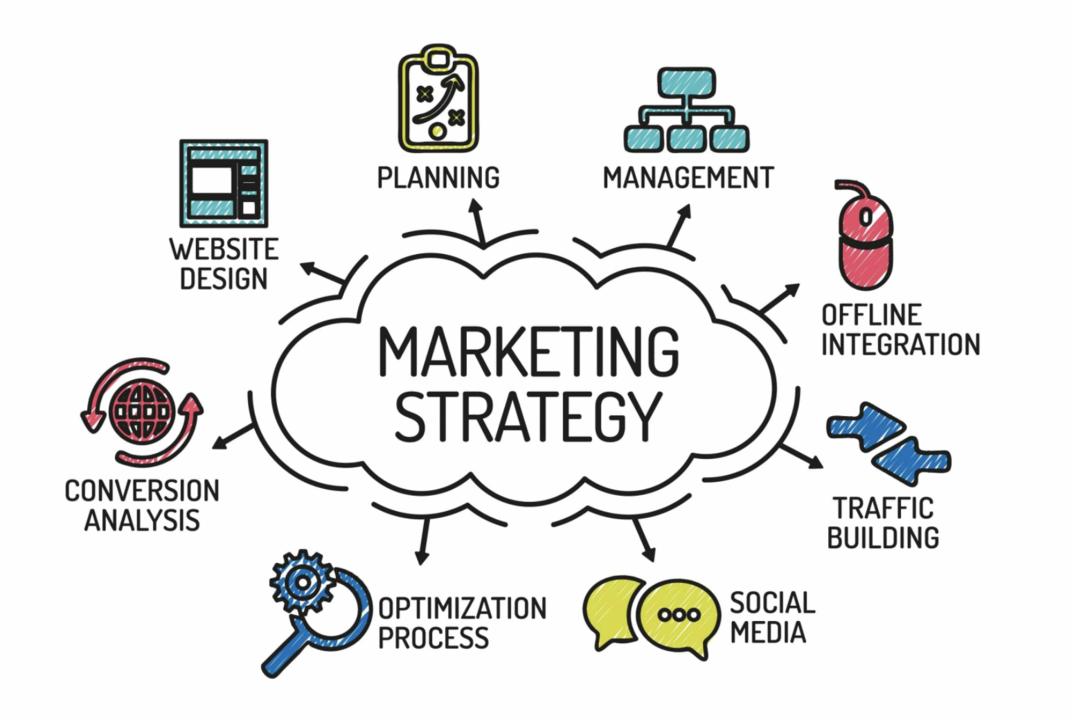In today's dynamic business landscape, marketing strategies must evolve continuously to keep pace with changing consumer preferences, technological advancements, and competitive pressures. Here are some effective marketing strategies that can help businesses grow and thrive.

1. Content Marketing
Content marketing involves creating and distributing valuable, relevant, and consistent content to attract and engage a clearly defined audience. This strategy is centered on providing useful information to potential customers, which can help build trust and establish a brand as an industry authority. Key components of content marketing include:
Blog Posts: Regularly updated blogs that address industry trends, customer pain points, and how-to guides.
E-books and Whitepapers: In-depth resources that offer detailed insights and solutions.
Infographics: Visually appealing graphics that simplify complex information.
Videos: Engaging and shareable content that can explain concepts, showcase products, or tell a brand story.
2. Social Media Marketing
Social media platforms like Facebook, Instagram, Twitter, LinkedIn, and TikTok offer businesses a powerful way to reach and interact with their audience. Effective social media marketing strategies include:
Regular Posting: Consistent updates that keep the audience engaged.
Engaging Content: Posts that encourage likes, shares, and comments.
Influencer Collaborations: Partnering with influencers to reach a broader audience.
Paid Advertising: Targeted ads that reach specific demographics and interests.
3. Email Marketing
Email marketing remains one of the most cost-effective strategies. It allows businesses to nurture leads, maintain customer relationships, and promote products or services. Effective email marketing tactics include:
Personalization: Tailoring emails to individual preferences and behaviors.
Segmentation: Dividing the email list into smaller groups based on demographics or purchase history.
Automated Campaigns: Triggered emails based on specific actions, such as welcome emails or cart abandonment reminders.
Engaging Content: Compelling subject lines and valuable content to improve open and click-through rates.
LeadPro has free plans for email marketing.
4. Search Engine Optimization (SEO)
SEO is the process of optimizing a website to rank higher in search engine results pages (SERPs). Higher rankings increase visibility and drive organic traffic. Essential SEO strategies include:
Keyword Research: Identifying relevant keywords that potential customers are searching for.
On-Page SEO: Optimizing website content, meta tags, and URLs with targeted keywords.
Off-Page SEO: Building backlinks from reputable sites to improve domain authority.
Technical SEO: Ensuring the website is mobile-friendly, fast-loading, and has a clean site structure.
5. Pay-Per-Click (PPC) Advertising
PPC advertising allows businesses to place ads on search engines and other platforms, paying only when the ad is clicked. This strategy provides immediate visibility and can be highly targeted. Key elements of a successful PPC campaign include:
Keyword Targeting: Bidding on keywords that potential customers are likely to use.
Ad Copy: Writing compelling ads that encourage clicks.
Landing Pages: Creating optimized landing pages that convert visitors into leads or customers.
Analytics: Continuously monitoring and adjusting the campaign to improve performance.
6. Influencer Marketing
Influencer marketing leverages individuals with a large and engaged following to promote a brand’s products or services. This strategy can be highly effective for reaching specific demographics and building brand credibility. Effective influencer marketing involves:
Choosing the Right Influencers: Selecting influencers whose audience aligns with the brand’s target market.
Authentic Partnerships: Encouraging genuine and relatable content.
Clear Goals: Defining what the campaign aims to achieve, such as brand awareness or sales.
Performance Tracking: Measuring the campaign’s impact through engagement metrics and ROI.
7. Referral Programs
Referral programs incentivize existing customers to refer new customers. This strategy leverages word-of-mouth marketing and can significantly reduce acquisition costs. Successful referral programs include:
- Clear Incentives: Offering rewards that are appealing to both referrers and new customers.
- Easy Participation: Simplifying the referral process to encourage participation.
- Tracking and Analytics: Monitoring the program’s performance to optimize incentives and communication.
8. Customer Relationship Management (CRM)
CRM systems help businesses manage interactions with current and potential customers. Effective CRM strategies focus on:
Data Collection: Gathering detailed information about customer preferences and behaviors.
Personalized Communication: Tailoring messages based on customer data.
Loyalty Programs: Creating programs that reward repeat customers and foster loyalty.
Feedback Loops: Encouraging and using customer feedback to improve products and services.
LeadPro has a CRM with free plans available.
Conclusion
Implementing a combination of these marketing strategies can help businesses increase their visibility, attract new customers, and build lasting relationships. The key is to continually analyze the effectiveness of each strategy and adapt to the ever-changing market conditions. By staying flexible and customer-focused, businesses can achieve sustainable growth and long-term success.